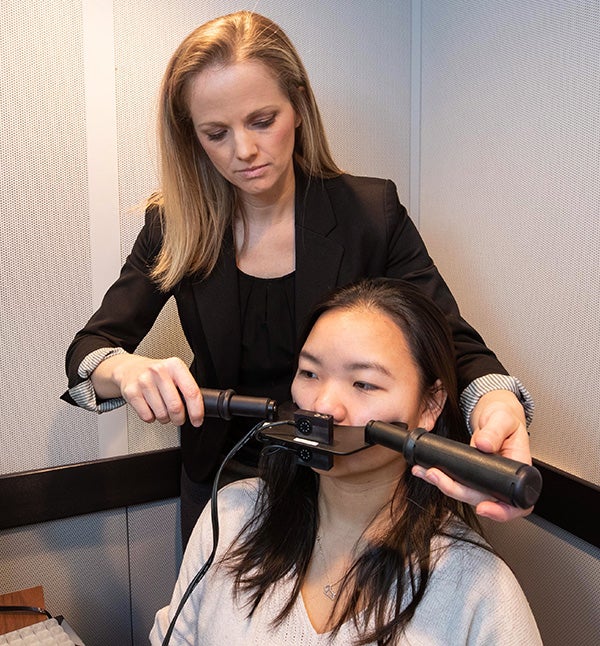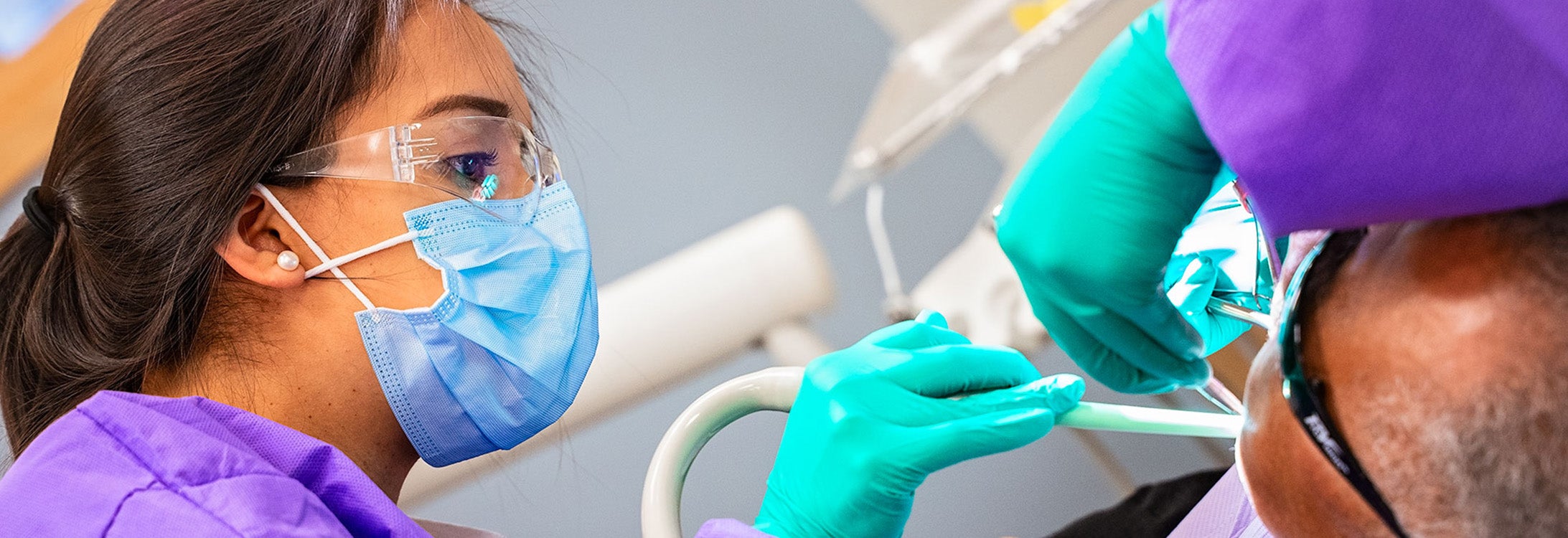MARKET VALUE
ECU’s Digital Market gives researchers opportunity to share innovations
Not every bright idea leads to a patent or a late-night as-seen-on-TV infomercial.
But those ideas can lead to innovations that become vital in homes, offices and labs across the country.
East Carolina University researchers are finding value in their innovations through the university’s newly launched Digital Market.
The platform brings together content created by conscientious faculty and staff in an online marketplace that is accessible to the general public. The digital exchange features products that may not be patentable but still hold tremendous worth for those in their targeted fields.
The Digital Market was developed by ECU’s Office of Licensing and Commercialization, which saw a need for a simple online interface where researchers could house products developed from their basic research. The market offers a variety of products, including virtual reality simulations and educational courses.
“It’s great to see the diversity of applications and to know that they’re being downloaded and used to help people,” ECU licensing associate Carlyle Rogers said. “Our office observed a lot of researchers who were generating great ideas, but there was no way to easily get those discoveries in the hands of individuals who needed them.”
Rogers added that the Digital Market gets to the core of the university’s mission — helping others.
“Research is about helping people” he said. “The products on the Digital Market demonstrate that individuals do not have to create the next blockbuster drug or a huge company to change the world. Even the smallest and simplest solution can have a positive impact and benefit people. At the end of the day, that’s what ECU is all about.”
Pirate researchers are already seeing the fruits of their labor blossom on the Digital Market.
Educating Educators
“I was new to the dental world almost a decade ago,” said Jo Anne Murray, interim assistant dean for education support and faculty development for the School of Dental Medicine. “When I came to the dental school, it was very apparent that we had a lot of good clinicians, but they were needing to gain knowledge as to how to be good educators for the adult learners they were working with. That’s how this whole process began.”
Murray connected with College of Education professor Steven Schmidt and, over the last four years, they assembled a team of educators and clinicians who developed a set of educational modules that prepare clinicians for the classroom. The modules focus on short lessons that provide immediate, actionable teaching strategies that the duo have found useful for adult learners with limited time.
“Many of the professors who come to the medical and dental schools have never had the opportunity to learn how to be a teacher,” Schmidt said. “They often base their teaching on standing up in front of the classroom and lecturing because it’s what they know. We wanted to provide them with an initial foundation of what it means to be an educator and how they can create a more successful learning environment.”
The 10 modules created by Murray and Schmidt’s team were grouped into a single program called Education in Healthcare Professions, which now has a home on the Digital Market. Health care educators can license the program for a 30-day single course or purchase a three-year license for the entire program.
The modules cover basic educational topics such as creation of a course syllabus, course development and planning, problem-based learning activities, and course assessment. The program has been tested at ECU and another U.S. academic institution. The results so far have been positive.
“We’re getting to a point where we hope to roll out the full program soon, even beyond health sciences,” Murray said. “The Digital Market met a need for us. We needed a place to get this product in the hands of others.”
Schmidt added that the site helped turn the product from an idea into a reality.
“It provided the business framework around what we’re doing,” he said. “It added the vital final components that allowed us to put our product in a place to reach our market.”
Supporting Speech
While one Digital Market application helps clinicians in the classroom, another is helping researchers in the lab.
Jamie Perry, professor and chair of the Department of Communication Sciences and Disorders in the College of Allied Health Sciences, found a home for her research tool Speech Sampler on the Digital Market.

Jamie Perry, professor and chair of the Department of Communication Sciences, found a home for her research tool Speech Sampler on the Digital Market. (Photo by Rhett Butler)
The product offers speech researchers a systematic way to capture, record and store data while conducting studies. The product addresses two big issues that arise during speech data collection: variable data collection methods and the need for a licensed speech language pathologist.
“I needed a way to overcome these issues in the multiple studies my labs and grants were leading,” Perry said. “I needed a product that standardized the speech data collection process and removed the need for a licensed speech language pathologist to collect the data because such individuals were not always available at other research sites. We also wanted a way to share all that data digitally.”
To conquer those challenges, Perry developed a computer program that any research team member could use to collect patient demographic data, oral examination data and speech recordings. The program uses images of oral anatomy that allow examiners to conduct oral examinations and uses prerecorded messages to collect speech data.
“The program has been a big help for researchers because you no longer have to be a clinician to collect the data. The program can do it for you,” Perry said. “It also has the added benefit of not allowing you to skip data collection steps. You have to collect the data before moving on to the next part of the program.
“We’ve also been surprised by the reaction from our patients. Our patients are usually young children, and they’ve taken to the computer program. It’s visually appealing and keeps them engaged. Data collection moves quicker when it’s something they enjoy doing.”
Speech Sampler, which can be downloaded from the Digital Market, also helps researchers save time during the data analysis portion of their work.
“Once speech data are collected, it sorts the data for you,” she said. “Speech data are complex because people can say a lot very quickly. We have to analyze every single piece of the sentence collected. It’s a massive amount of data, and this program automatically cuts it up for you and stores it in a unique folder that can be accessed and shared from anywhere.”
Like the educational prep courses, Perry’s product has received great early reviews.
“I was on a research call with about 10 other researchers, and I discussed the program and shared a video we created to help promote the product,” Perry said. “There was an overwhelming response that they wished they had a copy of it. It was good to know that I wasn’t the only one to find the program valuable.”
Favorable Future
With eight applications on the Digital Market for purchase, Rogers believes that the future of the platform is bright.
“Our goal is to continue to grow and show the general public that ideas that come from universities can generate a positive effect,” Rogers said. “We want to serve as a model for how universities can better engage the public to create a direct and immediate impact.”
Rogers added that it is important to recognize the role research plays in innovation and the development of new products like those on the Digital Market.
“These products, created in labs and offices at this university, can have a transformative effect,” he said. “If more universities bought into this idea, we’d have a better relationship with the communities we serve. It is my belief the Digital Market will continue to strengthen our relationship with eastern North Carolina and beyond.”
ECU’s Digital Market is open to the public. University researchers can submit their products and ideas to the market online.
